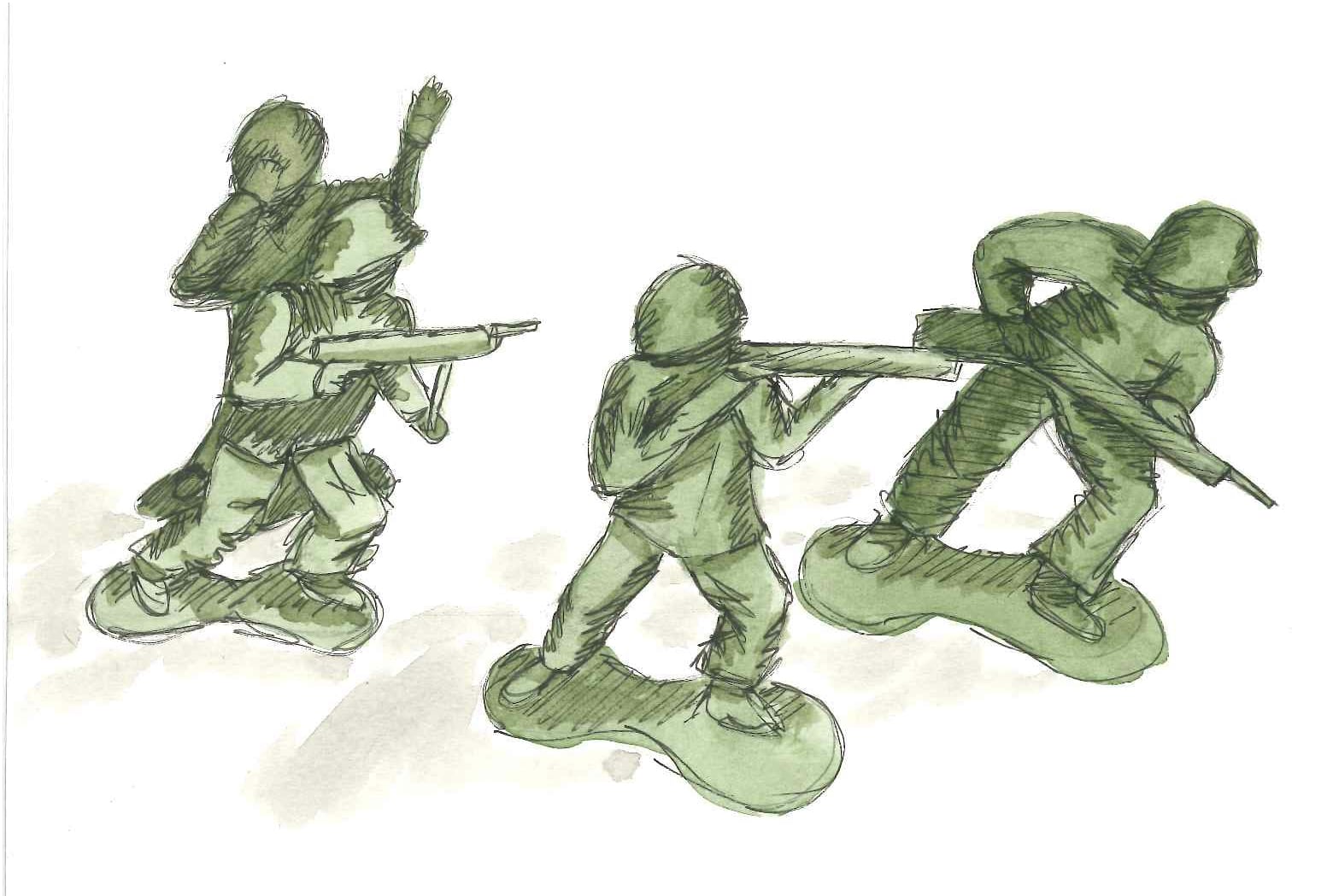Don’t read the comments — that’s the first rule of Facebook.
Regardless, I waded into the swamp. This time my fix was a news story from KSBW Action News 8 detailing a military tribunal’s decision to forgo a jail sentence for Sergeant Bowe Bergdahl, who deserted his post in Afghanistan in 2009. President Barack Obama secured his release from Taliban captivity through a controversial prisoner swap in 2014, but it has taken until this past week to determine what punishment Bergdahl would serve for his misconduct.
The comments, unsurprisingly, reeked of unmitigated rage.
“Left to join the Taliban, gave them military intel, six soldiers died looking for him,” reads one comment from Eric Fleming on KSBW’s Facebook post. “Obama’s judge let a deserter and terrorist sympathizer off the hook. He should be hung for treason!”
Directly underneath, fellow Facebook user Jonathan Stanley takes an opposing viewpoint.
“Go bergdahl! If you people knew the terrorising ways of the friekn u.s. military; you all would (should) walk away too! Amazing at how blind America is in their own terrorising ways! Smh!!!” Stanley said.
I was not surprised to see such a cacophony of extreme reactions. But seeing such comments made me wonder — why must Bergdahl be either a hero or a traitor?
Bergdahl’s story is far more complicated than the media has portrayed. It is a perfect storm of media sensationalization and misinformation, compounded by the failures of the U.S. military in preparing its soldiers for the most harrowing experiences imaginable. The case highlights everything wrong with our media, our military and our perception of war.
Shortly after Bergdahl’s return in 2014, Fox News ran with reports that Bergdahl sought out the Taliban to deliver U.S. military intelligence. Further accounts of six soldiers dying on the search for Bergdahl incited anger and led to calls for blood. Today, this view of Bergdahl as a traitor dominates. On the campaign trail, President Donald Trump himself called for Bergdahl’s execution on several occasions.
Yet, much of the information informing this view is false. The NCIS report which Fox cited turned out to have never existed. Both sides have accused a tight-lipped Pentagon of a cover-up, with allegations that the military lied to the families of troops killed while searching for Bergdahl counterbalanced by allegations that the military cherry-picked intelligence in order to use Bergdahl’s disappearance as an excuse to push deeper into Afghan territory. The Pentagon has refused to connect any specific casualties to Bergdahl-related missions.
So is Bergdahl evidence of a secretive military that preys on impressionable young men and converts them into agents of rape and terror abroad? Is Bergdahl just one in a long line of conscientious objectors? After all, Bergdahl cites his disillusionment with the U.S. cause in Afghanistan as the reason he deserted, supposedly on a mission to report his concerns to a commander at a nearby base.
But Bergdahl has not behaved like a triumphant whistleblower. At his trial, Bergdahl pleaded guilty to desertion and admitted he had made a “horrible mistake,” apologizing for the pain caused to his fellow troops. And during his five years trapped in a filthy steel cage, Bergdahl refused to cooperate with his captors and attempted escape on several occasions. Upon his release, Bergdahl allegedly provided a “gold mine” of Taliban-related intelligence.
And to their credit, Bergdahl’s fellow soldiers, despite their utter contempt for the deserter, continued to search for him. One officer, wounded on the search, said he embarked on the mission because Bergdahl was “an American” and “had a mother.” Chasing rumors and faced with confusion, Bergdahl’s unit did not abandon what they believed to be their duty.
So did Bergdahl act with “honor and distinction,” a hero whose brothers acted boldly to save him? Again, no. Bergdahl’s actions greatly hampered military readiness in the region and put the lives of countless fellow soldiers in danger. Many veterans still hate his guts. He acted selfishly and thoughtlessly and deserves discipline. But honestly, I can’t think of a punishment more brutal than five years of Taliban torture. Even his dishonorable discharge is troubling, as it will deny Bergdahl access to VA healthcare and reintegration resources.
And as if this story was not complicated enough, the Army allowed Bergdahl to enlist in 2008 despite his discharge from the Coast Guard 2 years earlier for “psychological reasons.” Additionally, Bergdahl allegedly suffered from schizotypal personality disorder and PTSD at the time of his desertion. By all accounts, the military should never have let Bergdahl anywhere near Kabul.
These complexities highlight the fact that war is ultimately human. To expect perfection is unfair — especially from an ill 20-something, who, like too many of his fellow soldiers, was woefully unprepared.
Our system and our prejudices set up too many of our soldiers to fail. The military coaxed Bergdahl on to the cross and the media nailed him to it. The public has rushed to determine guilt or martyrdom based solely on the image of the crucified figure in front of them.
The case of Bowe Bergdahl is a societal tragedy. It is a tragedy for Bergdahl himself, and a tragedy for the soldiers irreversibly changed looking for him. But, furthermore, it is a tragedy for American idealism, whose neat dichotomies of good and evil, heroism and betrayal, bravery and cowardice, now lay in shattered pieces.
Zach Goodwin is an undeclared first year. He can be reached zgoodwin@oxy.edu.
![]()




































